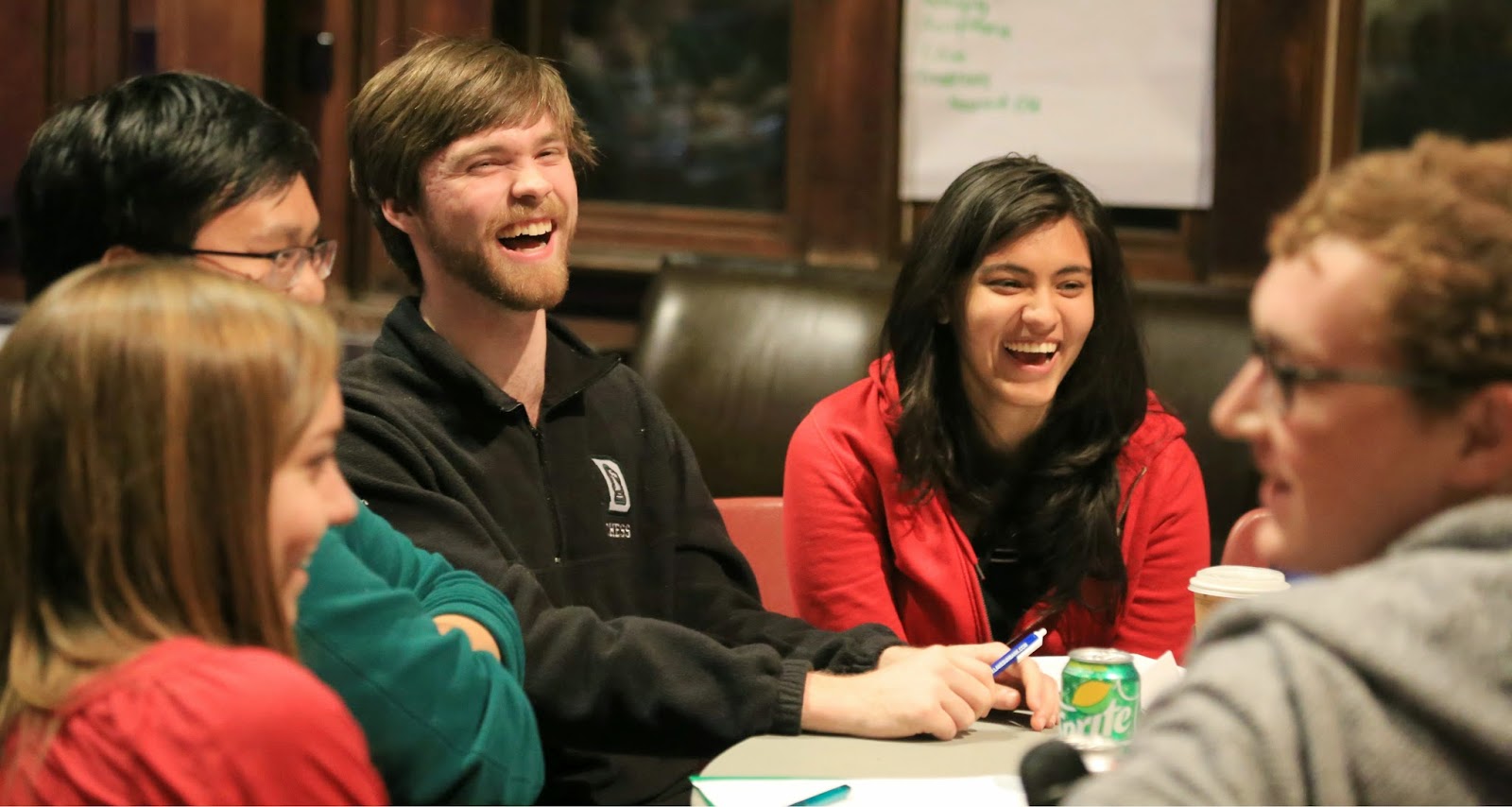- Public Policy
- Leadership
- Funding
- News & Events
- About the Center
Back to Top Nav
Back to Top Nav
Back to Top Nav
Back to Top Nav
This ongoing series shares the experiences of participants and facilitators in D-LAB (Dartmouth Leadership Attitudes and Behaviors), a student-facilitated program designed for first-year students to discover the relationship between leadership and personal values.
D-LAB’s fourth session, "Leadership for Others," opened with the group at large being asked to help recap of all the previous sessions. Participants were asked "what stuck" from prior weeks. Had they found themselves thinking about topics discussed during a previous session while going about their day? Many did, and by discussing past sessions participants were able to see the connections between personal values, the values of those one associates with, and leadership in different contexts. As a group, participants discussed what they took away from previous sessions and how they will apply what they have learned while moving forward in their Dartmouth careers.
 |
| D-LAB Participant Mac Zech '18 shares with the group at large thoughts about previous session topics. Photo by May Nguyen '18. |
Participants were asked prior to the evening to think about Dartmouth’s values as an institution and develop a list of what they think those core values are based on their experiences on campus for the last two and a half terms. Participants came up with values such as academic excellence, personal growth, curiosity, and community, to name a few. They were then showed Dartmouth’s own mission statement and stated values. There were a lot of similarities between the values that the participants came up with and the college’s official values.
 |
| D-LAB Facilitators Jean-Luc Beaubien '17 and Mahnum Shahzad '15 enjoy laughs with their group in session four. Photo by May Nguyen '18. |
Conversation then shifted to SMART objectives, or specific, measurable, attainable, relevant, and time-bound objectives. SMART is a great tool for setting goals that are reasonable and therefore attainable, with milestones to keep oneself accountable. Finally, participants were asked to come up with a personal goal using the SMART objectives. This great activity showed participants a simple and effective way of setting goals in an active manner that produces effective results.
-Written by Niamé Daffé '18, D-LAB Participant